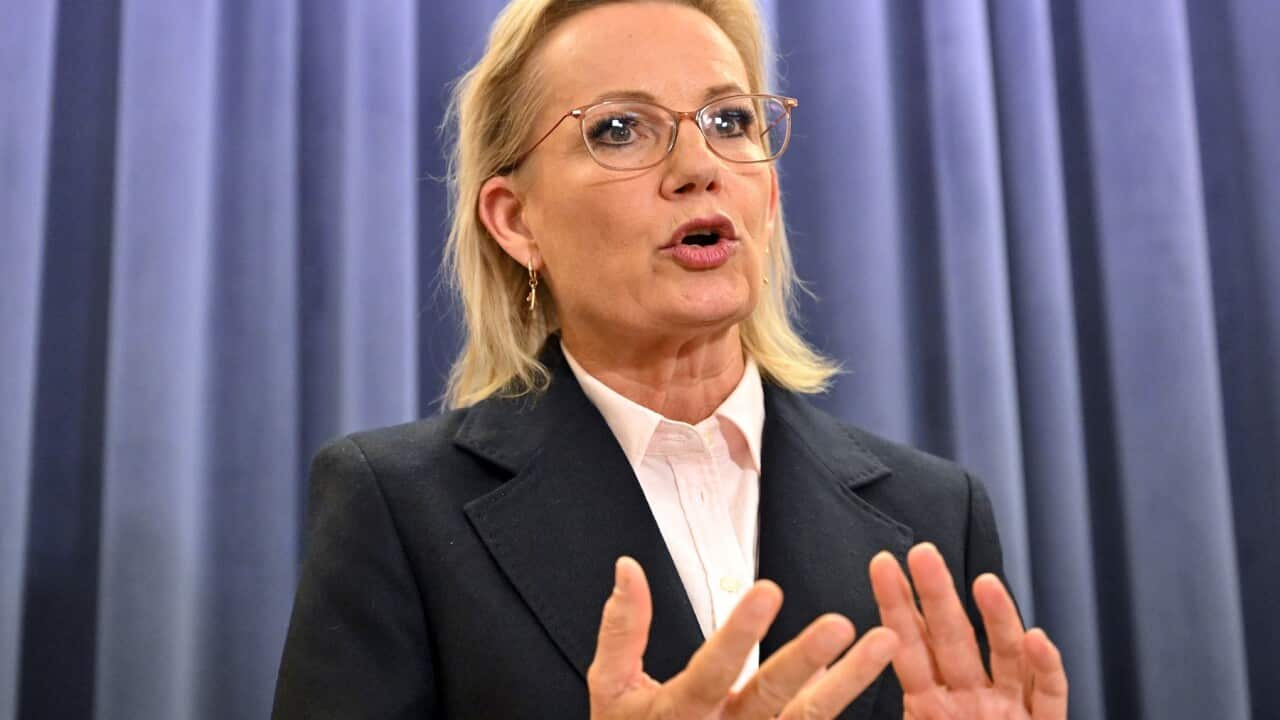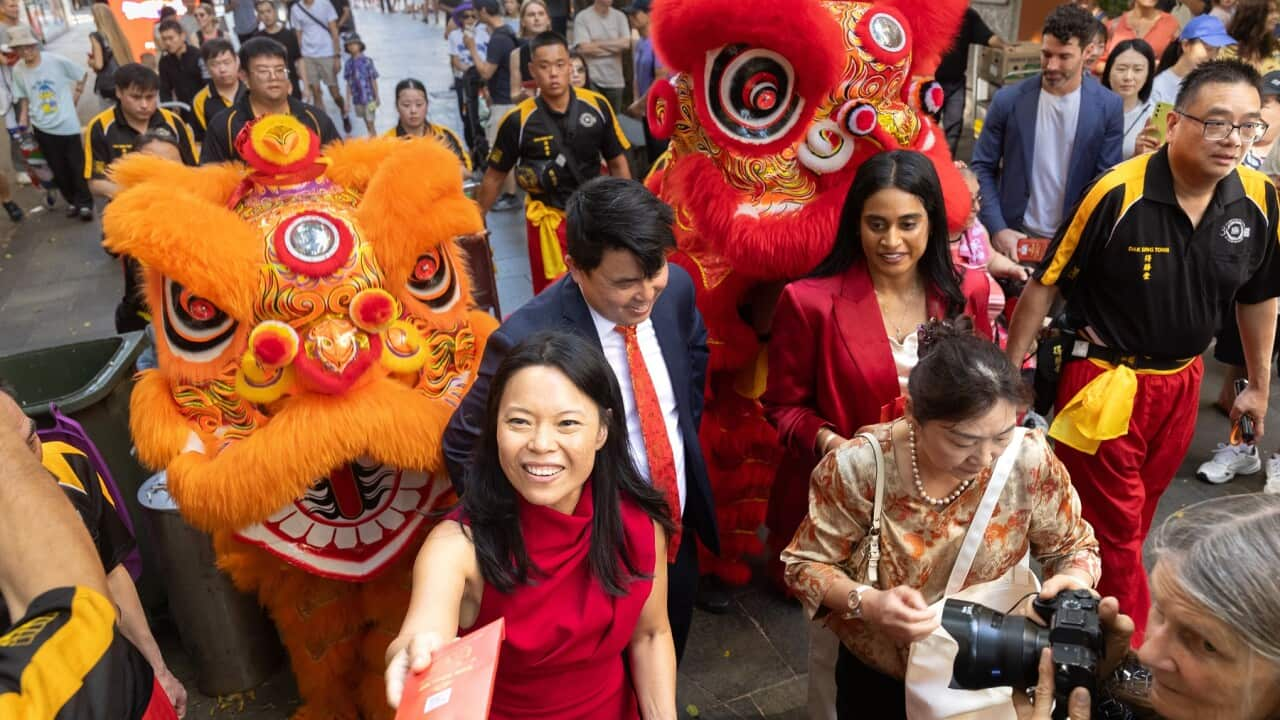Listen to Australian and world news, and follow trending topics with SBS News Podcasts.
TRANSCRIPT
Soon after making history as the first female leader of the Liberal Party, Sussan Ley said she wants to see more women follow in her footsteps.
"I want to say right here and now. We need more women in our party. We need more women in our party organisation, we need more women in this party room."
On Tuesday, Ms Ley became the most senior woman in the party's 80-year history, winning the party room vote over Opposition Treasury spokesperson Angus Taylor.
However, Ms Ley's election to party leader follows successive elections where female voters have turned away from the Liberal party.
A review of the party's loss following the 2022 election found a majority of women preferred Labor across all ages and the two-party preferred vote for the Liberals was weakest among young women.
Phoebe Hayman, a political researcher at La Trobe University, tells SBS News well-educated middle-class women began moving away from the Liberal Party several decades ago due to issues over education, refugee policies and a lack of funding public media.
"It's this repeated group of quite similar women, demographically, who are moving away from the party mostly sort on social and moral issues, so it's about those sort of value judgements rather than, perhaps, the core business of things like the economy."
Ms Hayman says the Liberal Party's move towards more conservative policies and the emergence of issues such as climate change as voter priorities have continued to turn women away.
Female voter dissatisfaction with the Liberal party became particularly pronounced during the years of Scott Morrison's prime ministership.
The perception that the Morrison government had responded inadequately to Brittany Higgins' allegation of sexual assault inside Parliament House sparked a movement against the party.
The 2022 election saw many turn their back on Morrison and the Liberals in favour of teal independent candidates.
Emeritus Professor Carol Johnson, a political scientist from the University of Adelaide, tells SBS News the Liberal party failed again to speak to female voters in the run-up to this year's election.
Professor Johnson says issues such as the Liberal's call to end working from home allowances for public service ignored women's perspectives, and although the policy was reversed, the damage had already been done.
"Working from home has particular advantages for women in a situation in which women are often more responsible for issues such as child care, looking after sick members of the family, elderly parents etcetera. So, although Jane Hume and others claimed it wasn't a gendered policy, in fact this policy did have gendered implications."
Following the Liberal party's shocking losses at this year's election, many are now questioning whether the party will introduce gender quotas to increase their number of female MPs.
In 1994, the Labor Party introduced gender quotas requiring 35 per cent of winnable seats at elections to be held by women by 2002.
This year, Labor women will outnumber men in the lower house for the first time, with women expected to hold 51 of the 93 seats that polling firm Redbridge predicts Labor will secure.
15 of those are newly-elected female MPs, including Ali France who ousted former Opposition Leader Peter Dutton in the Queensland seat of Dickson.
The Liberal Party has not yet committed to gender quotas among candidates.
Professor Johnson says Liberal Party values of merit make party members reluctant to adopt a quota.
However she says quotas have worked for Labor and Liberals may have to reconsider their definition of merit.
"You're talking about electing someone who can best represent the diverse Australian population and it seems to me that actually having gender diversity is a merit issue and the Liberal Party actually needs to come to terms with the fact that quotas aren't necessarily opposed to merit. They can be a way of ensuring that broader definitions of merit are actually brought into play."
However, the Liberal party also faces challenges in terms of redesigning policy.
Speaking after the leadership vote, Ms Ley said she wants to change the party's agenda to stop the loss of female voters.
"I don't want to see that decline for one more day. And that means a genuine, serious engagement with a new leadership team and a new agenda and one that I will personally drive."
Ms Hayman says women have historically been strong supporters of the Liberal Party and it may be possible for them to win female voters back by addressing their policy concerns with Liberal values.
"There is definitely scope there for the Liberal Party to develop policies that fit within their ideological framework, that take a kind of small government approach -- so that classic liberalism in particular works here -- to address areas that women care about rather than largely disregarding them or undermining them."
However, Professor Johnson says Ms Ley faces significant challenges because she won the leadership vote by a slim margin.
Ms Ley won the party room vote over Angus Taylor by 29 votes to 25.
Professor Johnson says she is in a precarious position and any moves to bring party policies more in line with modern women's values could put her in danger of losing her leadership.
"The issue would be even if she did want to take the Liberal party in a more socially progressive direction to try and win back some of those Teal seats, whether the conservatives in the party would actually let her do that or whether it would lead to major policy divisions and ructions within the parliamentary Liberal party."













